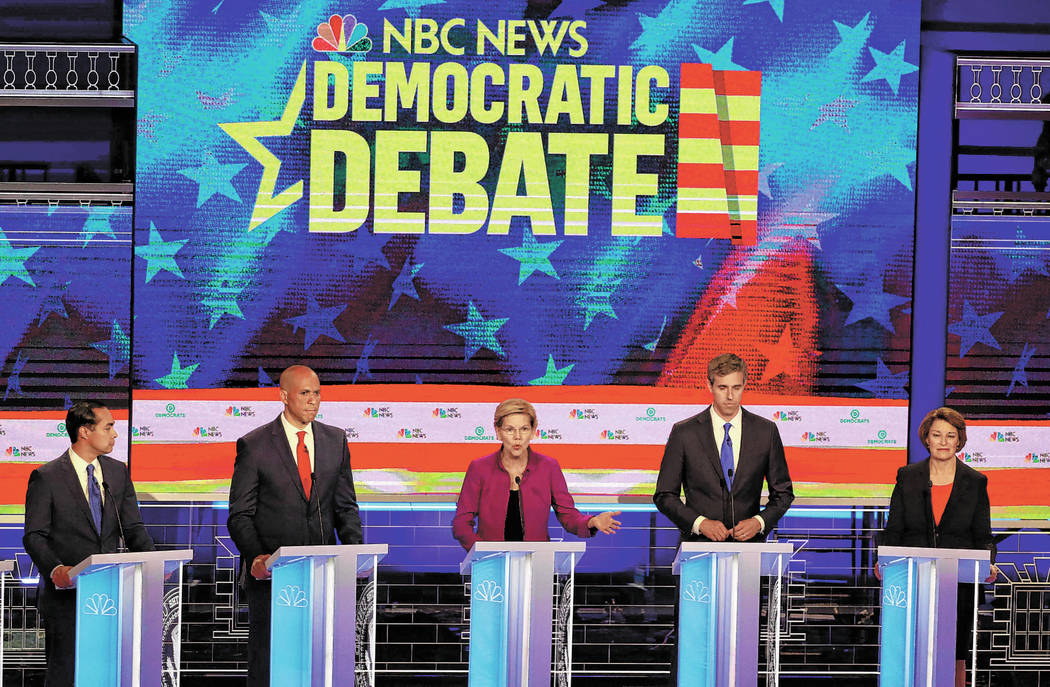EDITORIAL: The Democrats are coming for your bank account

To the surprise of absolutely nobody, the Democratic presidential debates last week were heavy on the free stuff but light on how to pay for it. That should concern every moderate middle-class voter.
The list of giveaways proposed by the various White House hopefuls was extensive: free college, free health care, free day care, free abortion and even free money in the form of “universal income” payments to every American. But most entertaining was watching the candidates bob and weave when explaining how they’d cover the trillions in new spending.
In Debate 1 on Wednesday, Beto O’Rourke spent a full minute tap-dancing around whether he favors a top tax rate of 70 percent. He never answered. New York Mayor Bill de Blasio, by contrast, was stunningly honest about his larcenous intent. “There’s plenty of money in this country,” he said. “It’s just in the wrong hands.” John Dillinger has nothing on this guy.
For the most part, however, the questioners that night failed to delve into the pesky topic of financing the massive expansion of the federal government favored by most of the candidates on stage.
The queries in Debate 2 were more direct on the issue. And it became clear Thursday that the notion of simply shaking down the evil “rich” to finance all these giveaways wouldn’t suffice. Under a Democratic administration intent on treating an already corpulent federal bureaucracy to a bottomless feast of other people’s money, members of the middle class had better clutch their wallets.
Asked about financing his agenda with higher taxes on those of average means, Bernie Sanders first said, “Every proposal I have brought forth is fully paid for,” yet spent 90 seconds avoiding the details before admitting, “Yes, they will pay more taxes.”
Kamala Harris was asked whether Democrats had a responsibility to explain how they “will pay for” their long list of freebies. The questioner never received a straight response. Later, lower-tier candidate Andrew Yang, a tech entrepreneur, pulled back the curtain. “If we had a value-added tax at even half the European level,” he proposed, “it would generate $800 billion in new revenue.” In other words, a regressive national sales tax of 10 percent that would increase the cost of every U.S. consumer product.
There were a few lonely voices of sanity. Former Colorado Gov. John Hickenlooper argued that Democrats must clearly articulate they aren’t “socialists” or else it will jeopardize their ability to win independent votes. He and John Delaney, a former congressman, also warned about the ramifications of taking away private insurance from 180 million Americans and imposing “Medicare for All” on already strapped hospitals.
But it’s doubtful anyone was listening with the siren song of collectivism droning in the background.